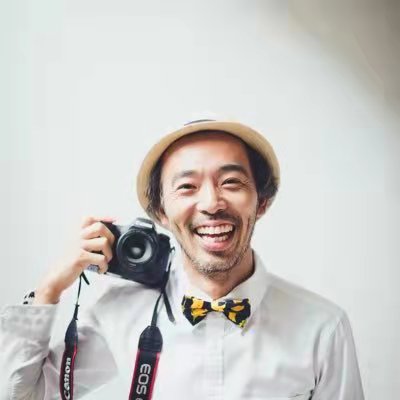
Phnom Penh, White Horse, Kampot, Kampong Speu ...... Walking through the streets, villages and towns of Cambodia, under the lens of Shunsuke Miyatake, hawkers, monks, girls selling flowers, beggars scavenging, people from all works , showing the diversity of life.
From recording life through the lens to changing life through the lens, he is Shunsuke Miyatake, an idealist who has traveled to 24 countries and a Japanese photographer doing charity work in Cambodia.
By:Eric
Recording with his lens, Their disappearing lives
There's no right or wrong. There was just life on the railway.
On May 5, 2019, on the side of a section of railroad in Phnom Penh, the 5 a.m. sunlight cuts through the smoke brought up by garbage burning, hazing the tall buildings in the distance in a golden light. In the middle of the railroad track, a woman in a pink flowered shirt is carrying a heavy pot from the darkness to the light.
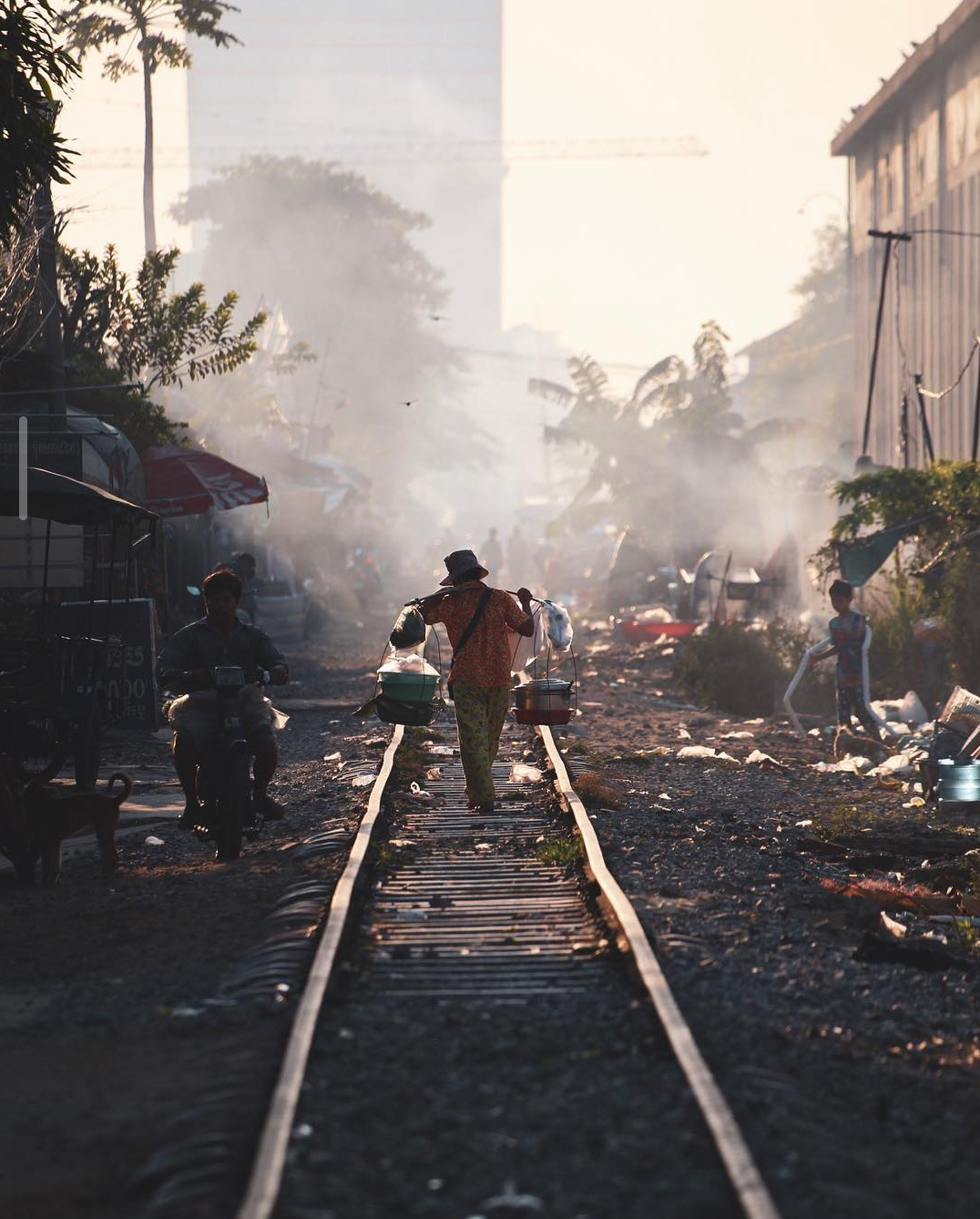
Shunsuke Miyatake had woken up before 5:00 am and gone along the railway, with two of his friends to see and feel Raw Life. There were robbers on motorcycle along the way, there were kind of drug dealers at some point, there were families with little or no clothes, there was nasty garbage, there was a strong contrast between urban development and local struggling people, there was a lot of smoke coming from the burning garbage.
I had woken up before 5:00 am and gone along the railway, with two of my friends to see and feel Raw Life. There were robbers on motorcycle along the way, there were kind of drug dealers at some point, there were families with little or no clothes, there was nasty garbage, there was a strong contrast between urban development and local struggling people, there was a lot of smoke coming from the burning garbage.
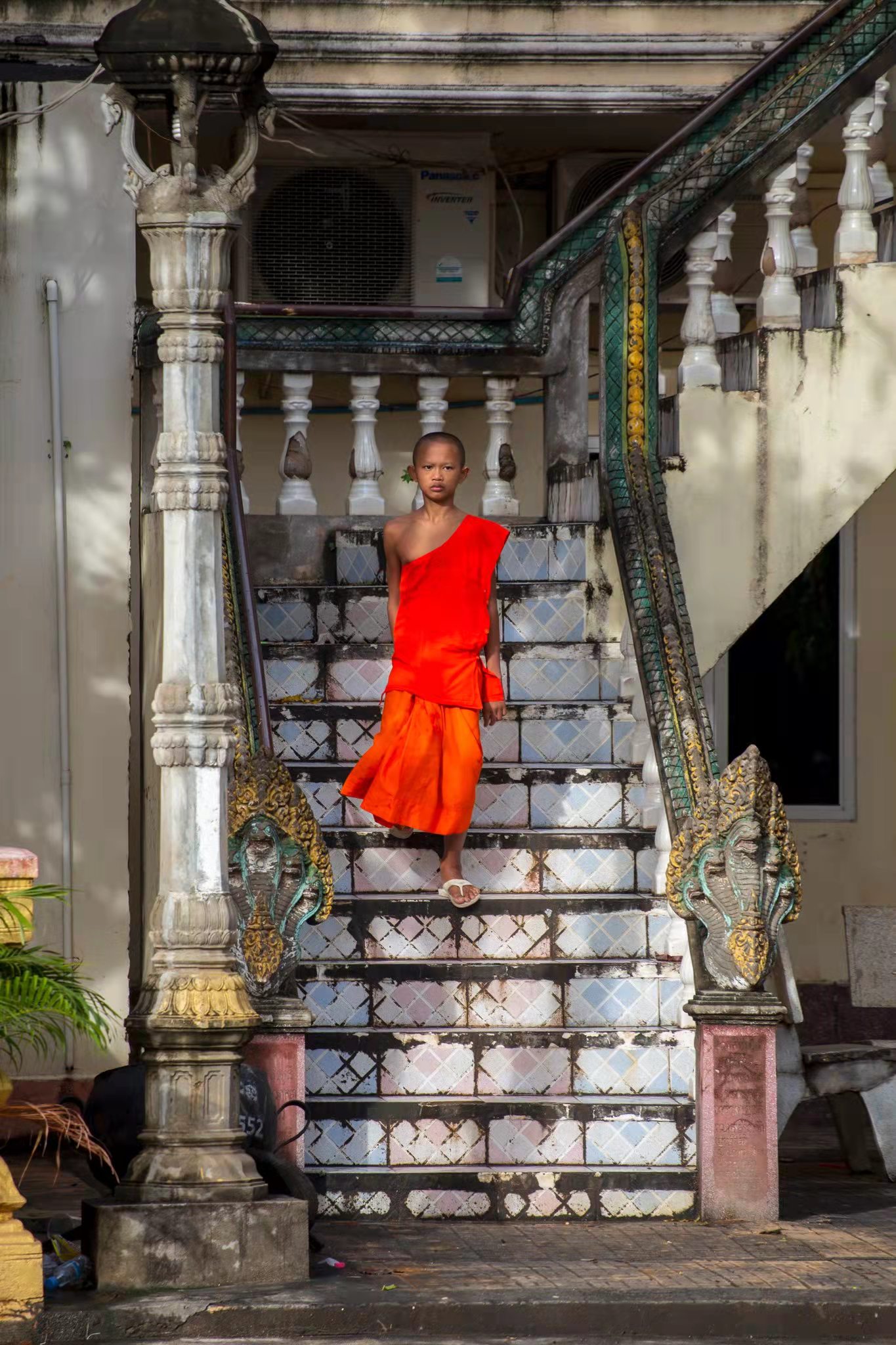
At the same time, there were a lot of smiles on the people's faces, there were interaction between people and pigeons, there were kids playing around, there were people sitting down together and discussing something, there were women washing dishes with rainwater in a bucket, there were families waiting for breakfast in a tiny hut, there were a lot of laundries hung in the air. There was no right or wrong: There was just life on the railway.
This is a brief moment in the life of Shunsuke Miyatake, and there are thousands of other such moments on his social media platform.
Miyatake came to Cambodia in 2016. In the past five years, he has traveled with a camera through the cities and villages, streets and alleys of Cambodia, and the events and landscapes that shocked and moved him were framed by his camera and presented by network.
However, if you look at the photos of Miyatake on the platform, you will find that the majority of his photos are not about wealth, elegance or even decency, but more about hardship, poverty and hard work. Yet all the photos express a common theme: the beauty of daily life and the glow of humanity. This is what touches people the most in his photos: what he records is what is happening around us every second of every day.
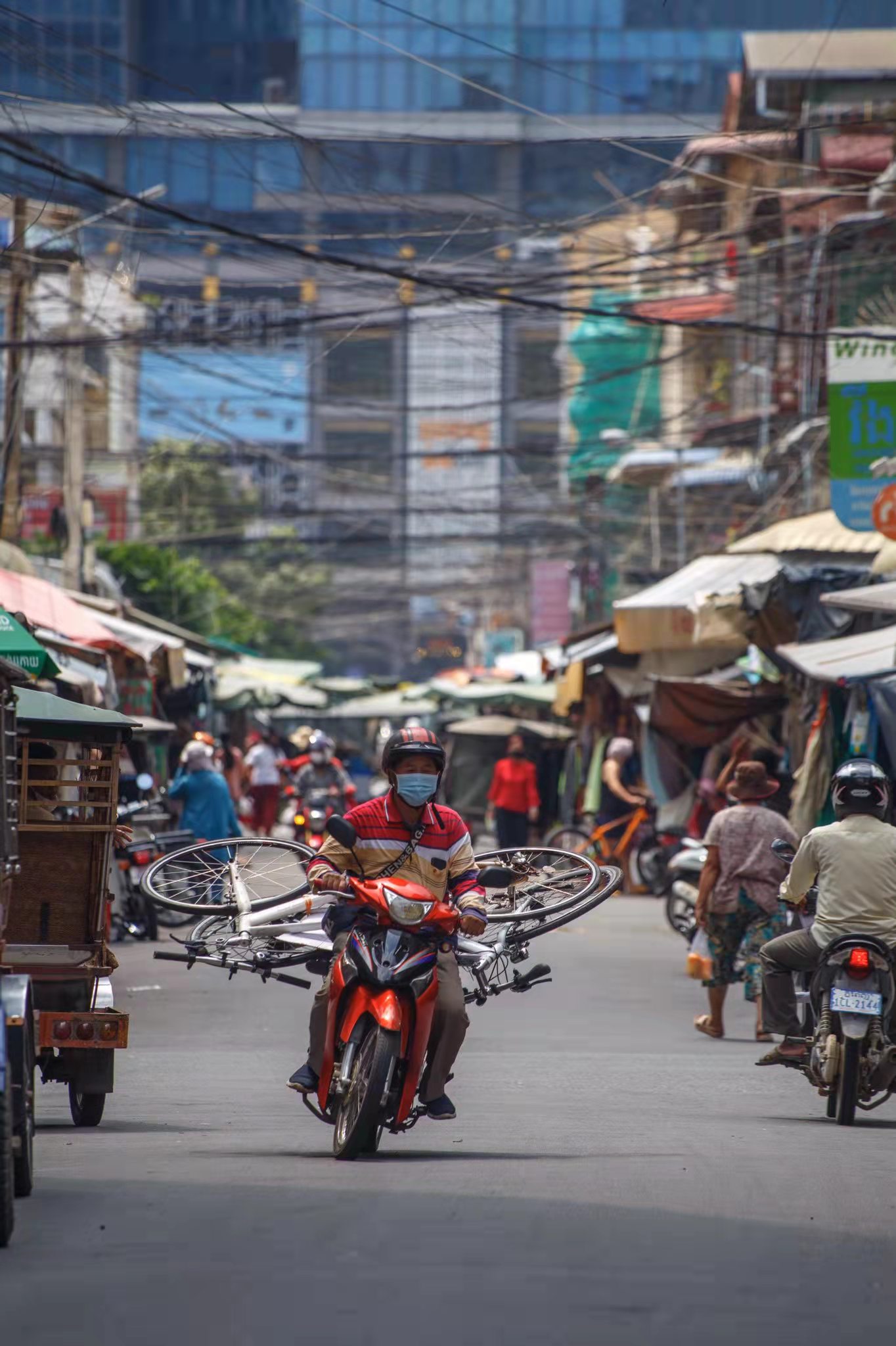
"These photos are truly beautiful moments in our daily lives. When I take these, I sigh every time." But these moments, at a rapid pace, are disappearing from people's daily lives.
Miyatake recalls that when he first arrived in Cambodia, the Grab / Pass App did not exist, and there were almost no take-out apps and no convenient mobile payment apps. And in the past five years,more and more featureless buildings for investment purposes from abroad, instead of real demand from the ordinary people who live here. With no people living there, it is like a ghost town.
What a great pity that some historical buildings filled with the thoughts and lives of good old people have been torn,and the street vendors along the river have slowly disappeared. They are being erased, as if, never existed.
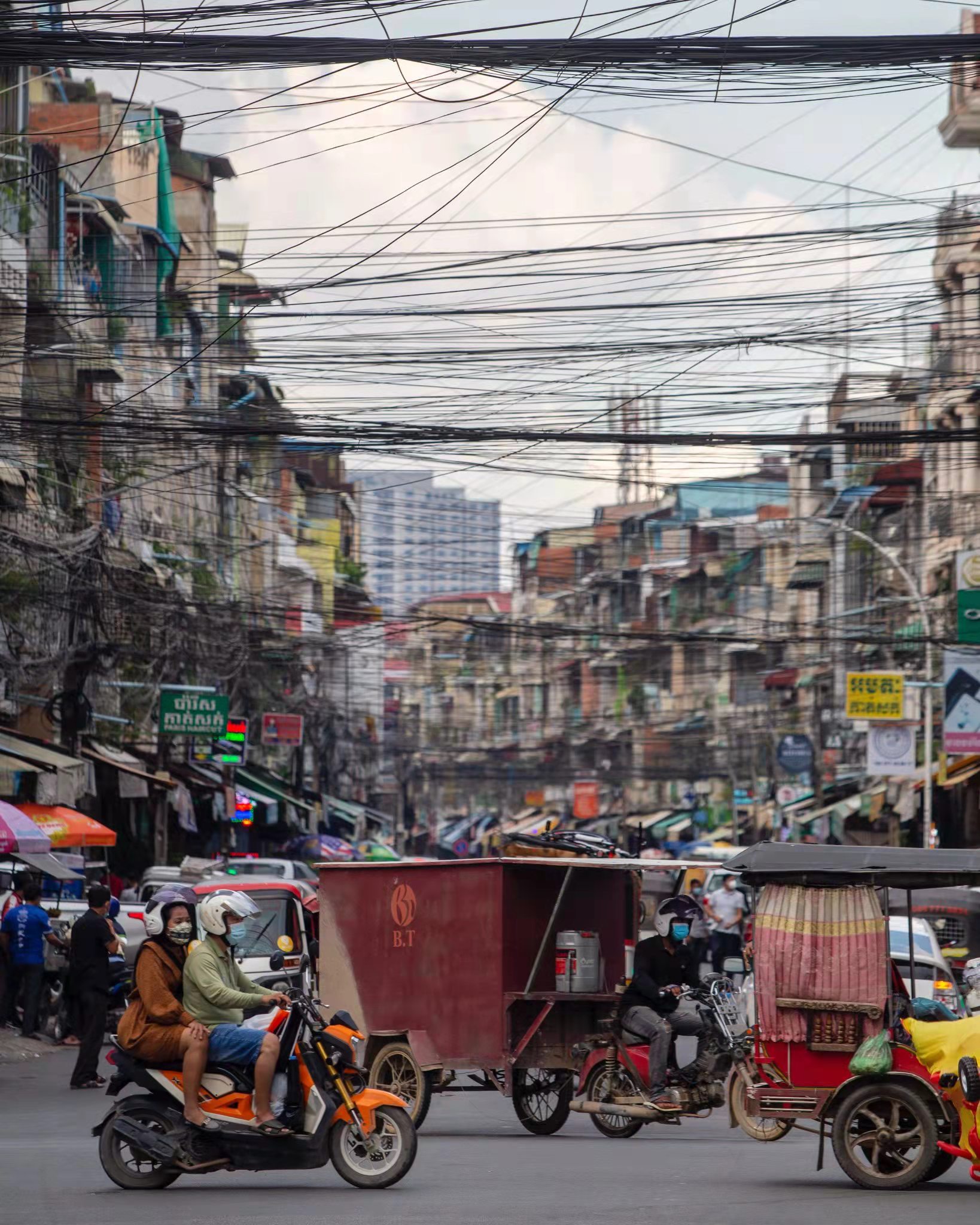
“People living in Cambodia literally enjoy the convenience, and material wealth compared with before which is so great that it actually changes people's lives. But at the same time, I think they are losing something that is more important to our lives than those.”
He calls those mindset “the price of convenience”.
The conversation between customers and shop owners, the hustle and bustle in the street markets, crying children and parents calming them down, he loved these genuine human interactions. He had been to 24 countries, There are a lot of differences between every country. The language, culture, food, music, road, house, clothes, religion… and every country has good / bad points. He likes Portugal, especially the mood of Lisbon was amazing. Beautiful houses near the sea, delicious foods, kind people.
But he didn’t live those countries, just traveled quickly. So, Phnom Penh, Cambodia is his first place to live outside of Japan. His favorite part of Phnom Penh is the distance of the people from around the world is quite close.“ I think there are not so many places in the world where you can meet the people all round the world so easily, and they are always inspiring me and giving me another perspective.”
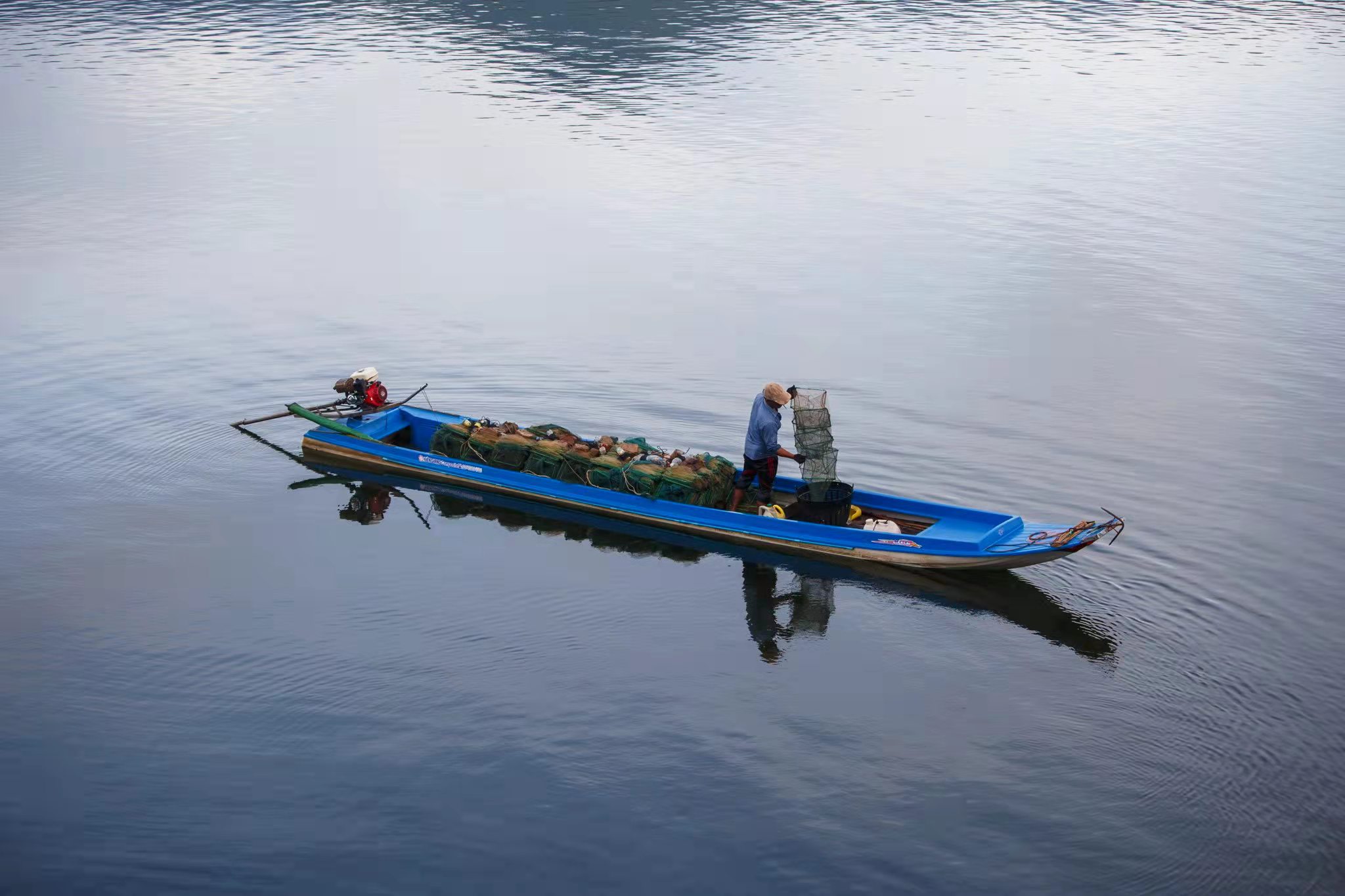
“I don't deny the efforts to be rich or materially wealthy, but I wished that people with good heart would tell those people losing their minds that we should pursue spiritual wealth rather than material wealth. And I do hope those voices from the everyday people will reach the people who shape this country.”
Changing, through the lens The lives they are experiencing
As I met people from all works of life, one big question was coming to mind:“WHAT REALLY ENRICHES OUR LIVES?”
In February of this year, the epidemic broke out in Cambodia, shutting down many factories and putting cities on lockdown, plunging countless people into a more difficult life. The cities where we live were devastated by the epidemic and lost their former vitality. It was time to do something about it.
On April 29th, as the co-founder of ART4FOOD, Shunsuke Miyatake and his friends created the project "ART4FOOD", or "art for food". "Ninety artists and photographers joined the team and in less than a month, with the help of well-wishers, they managed to raise $15,286.11 and give away 7,005 meals to people in need.
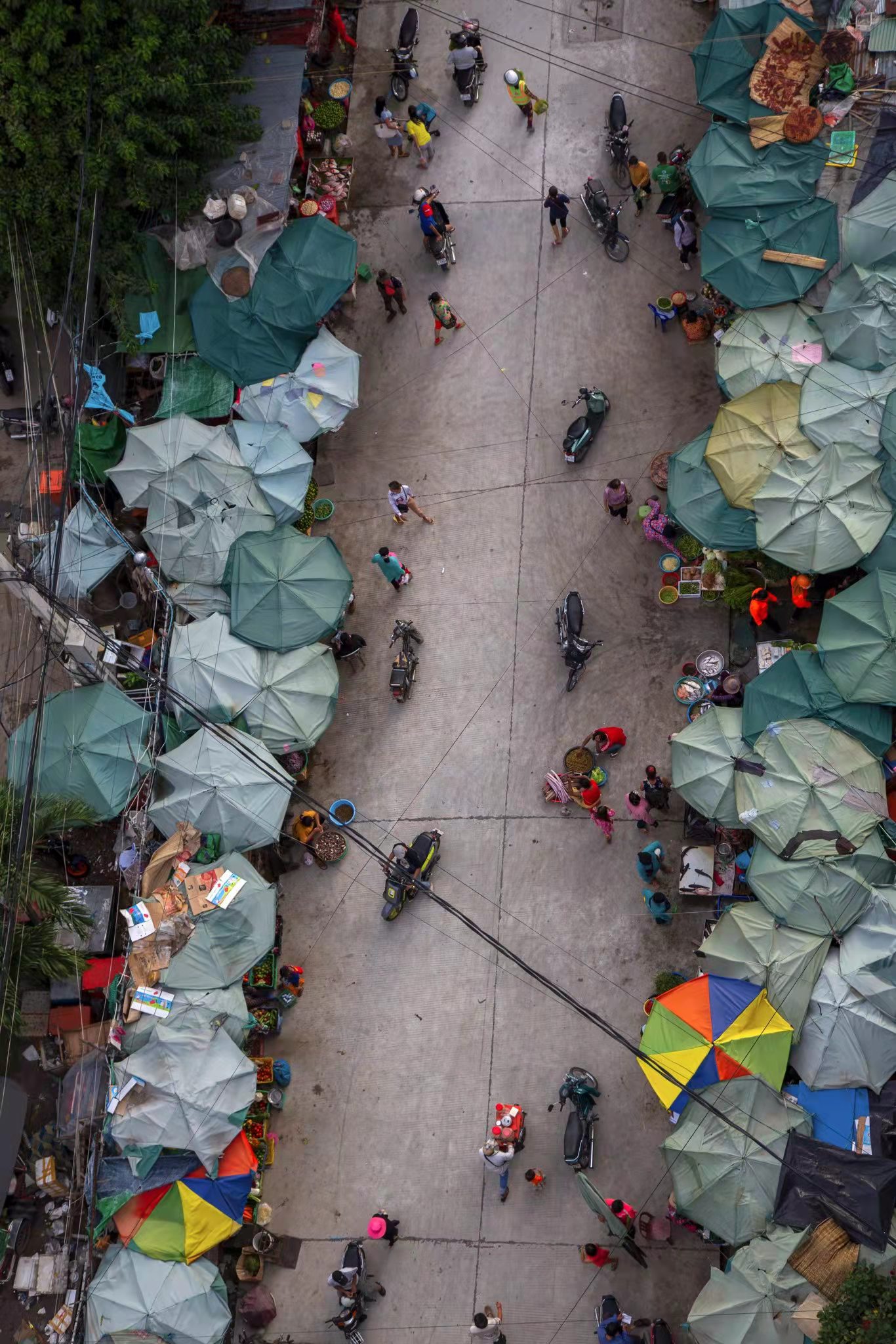
Everyone involved showed him the friendliness and kindness of the world: the tricycle drivers who distributed food on the streets, the street vendors who helped make the food, and all the customers who paid for the project's photos and other works in this project. The kindness among people, like a trickle of water gathering into a vast ocean, coalesces to show the greatness of humanity and the power of life.
Of course, light and darkness are never interdependent, and inevitably there will be moments of disappointment. Some customers are unwilling to pay for shipping, even if it is only a dollar or even less. Then there are artists who join just for their own fame and fortune, rather than to help those in need. "It means some people couldn’t understand what we really intended to, and the meaning of this project. That made me feel disappointed. ."
Now, the epidemic in Cambodia is getting better, but there are still many people who need help, so ART4FOOD is still going on. And in addition to that, Miyatake will start another event project.
"Do you know what IKIGAI is?" Miyatake asked during the interview. But then he himself quickly gave the answer, "IKIGAI, is the purpose in life or the reason for being."
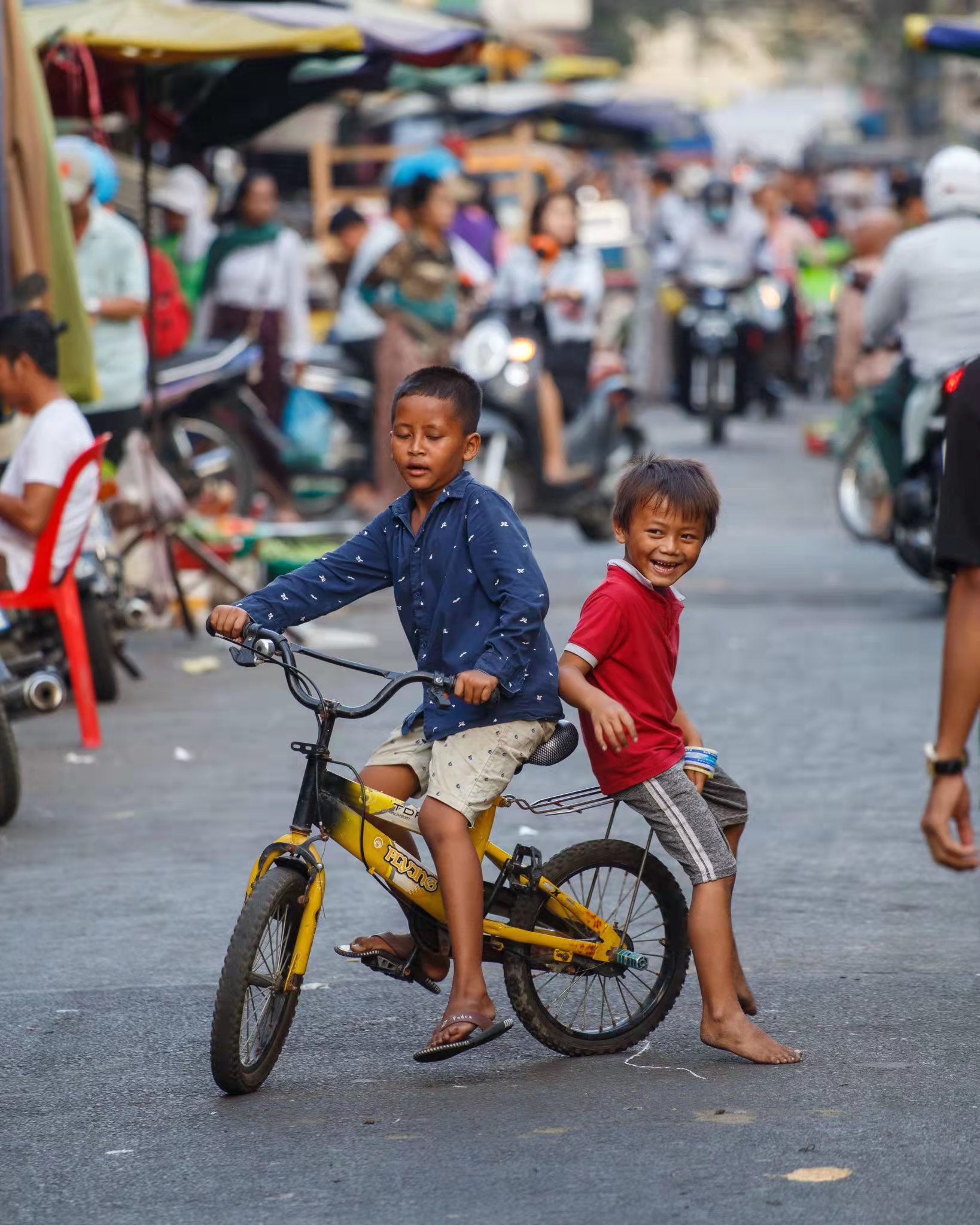
In his five years in Cambodia, Miyatake has met countless people whose lives are completely different from his: homeless people on the street, students studying in rural areas, CEOs of startups dreaming of making an impact on society, artists passionate about inspiring others, soccer players doing their best to win the league, street café owners always surrounded by regular customers ......
As he met more and more people from all works of life, a question came to his mind." What really enriches our lives?"
He saw that while the Internet had made the world more convenient, technological developments had also improved human life. But no matter how much new technology develops, some people will always be different from others: some people have no choice in life unlike others, depending on their environment and where they were born.
.
But these same people live in this world, and their daily life, instead of being overshadowed by the frenzy and noise of this world, goes straight to the essence of life because of its simplicity and roughness. Miyatake is clear, "What really enriches our lives?"No matter how many Google searches you do or how many Facebook connections you make, you won't find the answer to this question. Because the answer only exists within you.”
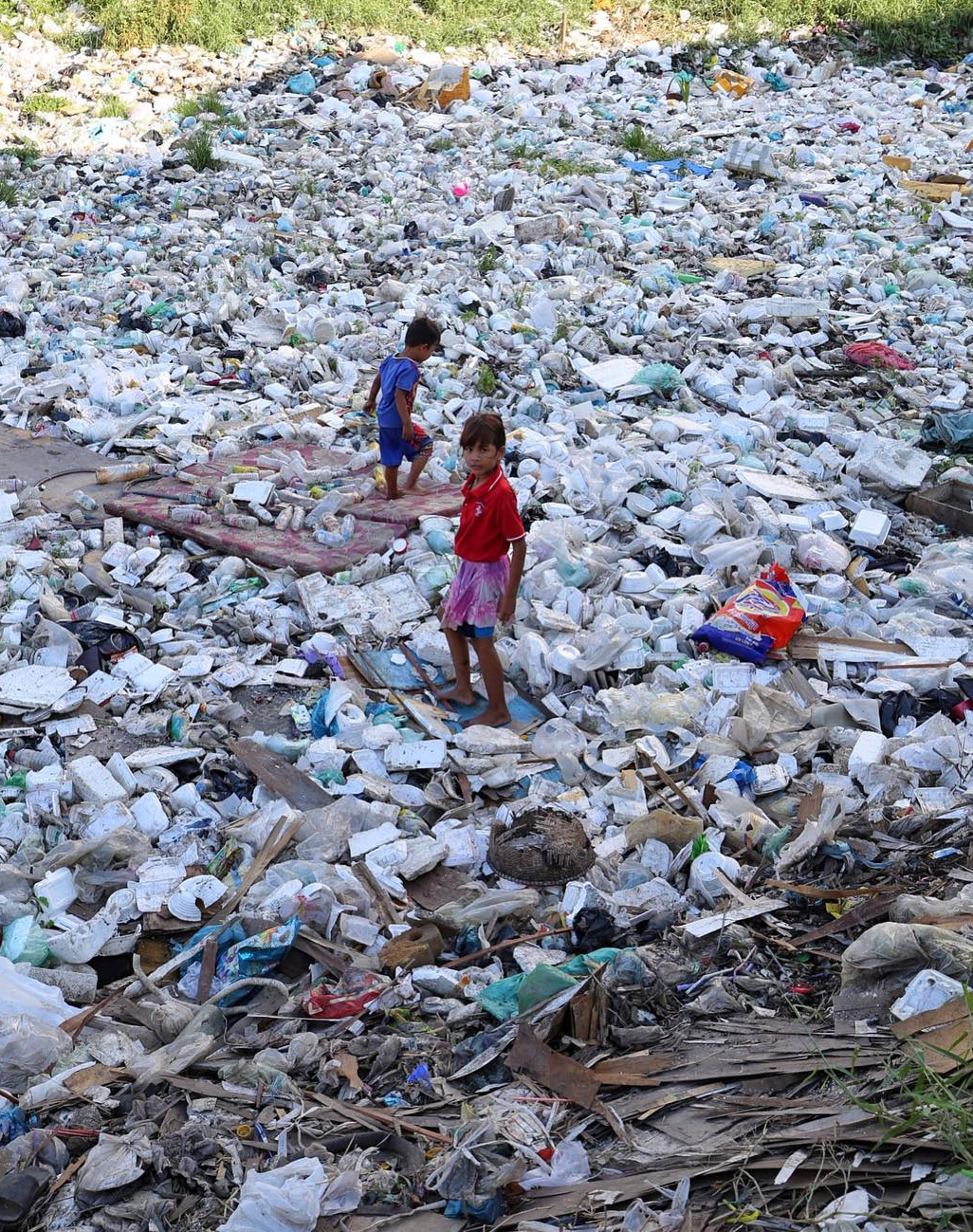
Miyatake decided to start a new experimental project, HUMANISTA.
"I will take a portrait and ask them the same question: What is your purpose in life? What really enriches your life? Wherever I go, I will show these stories on my website." The subjects will be anyone he meets in Cambodia, regardless of country, gender, age, religion, occupation or background.
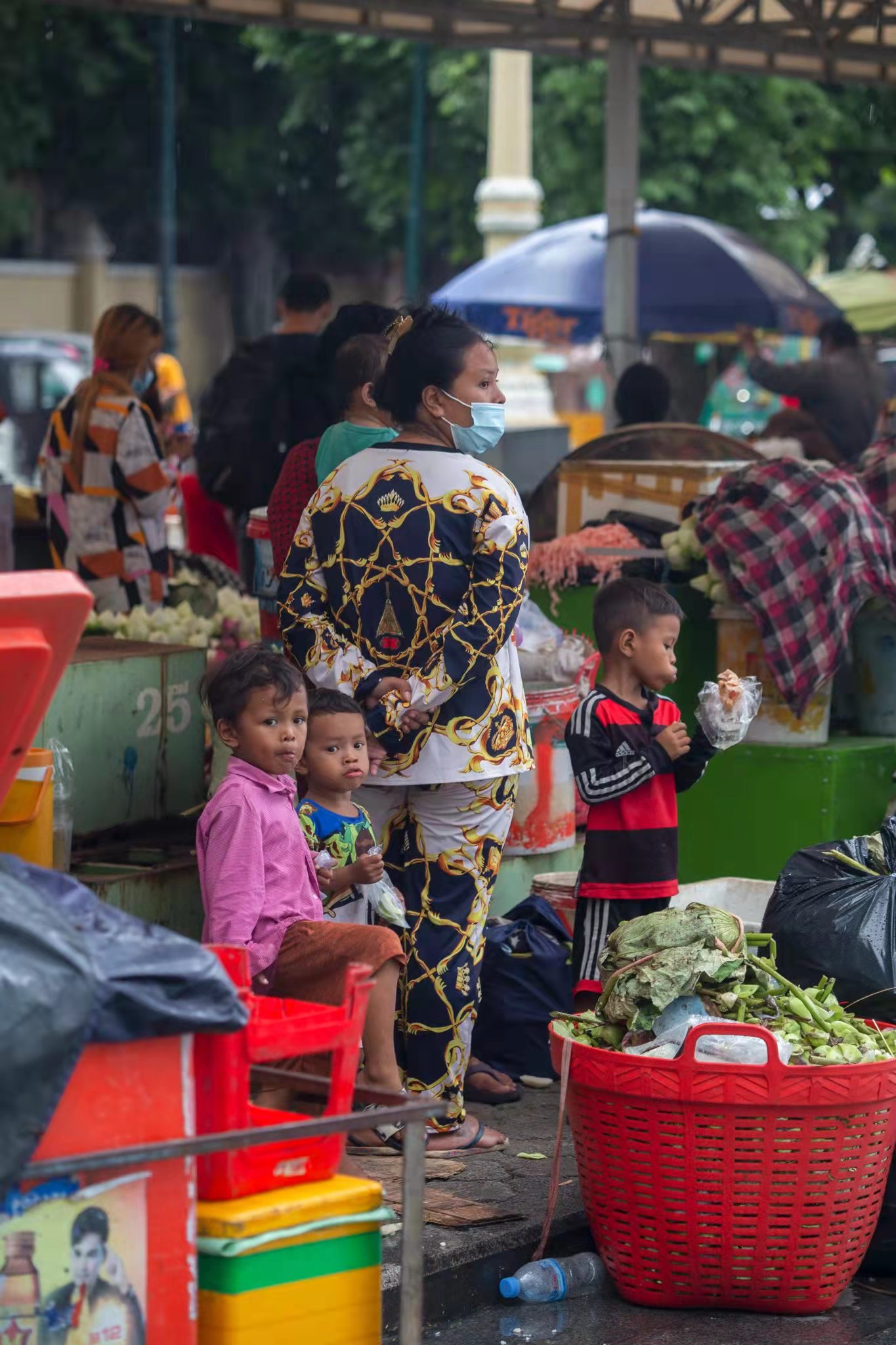
The purpose of this project is to collect stories of ordinary people that cannot be found on the Internet and to showcase these stories. In the process, the different lives of countless people will be revealed and the possibilities of life will be greatly explored and expanded.
"This will be my life's work." He is also working with "Ikigai Arts Center" to create portraits with Ikigai copy of the customers. And he is considering building their own ART4FOOD app with his team to connect artists/photographers and art/photography lovers.
It's not easy, because everybody in the team have their own jobs and it's quite difficult to manage these projects in their daily lives and work. But even though the difficulties are many, they remain confident: "It may take time, but we will make all these things happen."
If people can think about what really enriches their lives, their own "IKIGAI", and the diversity of people's lives in the world through this project, everything, then, is worth it.
To be a globle citizen, never judge a person by his country
We may be from different countries, but we are brothers and sisters living on the same planet, aren't we?
For many Chinese people, Cambodia, especially Sihanoukville, is a dangerous place.In Miyatake ’s view,“what is happening in Sihanoukville is tragic.”
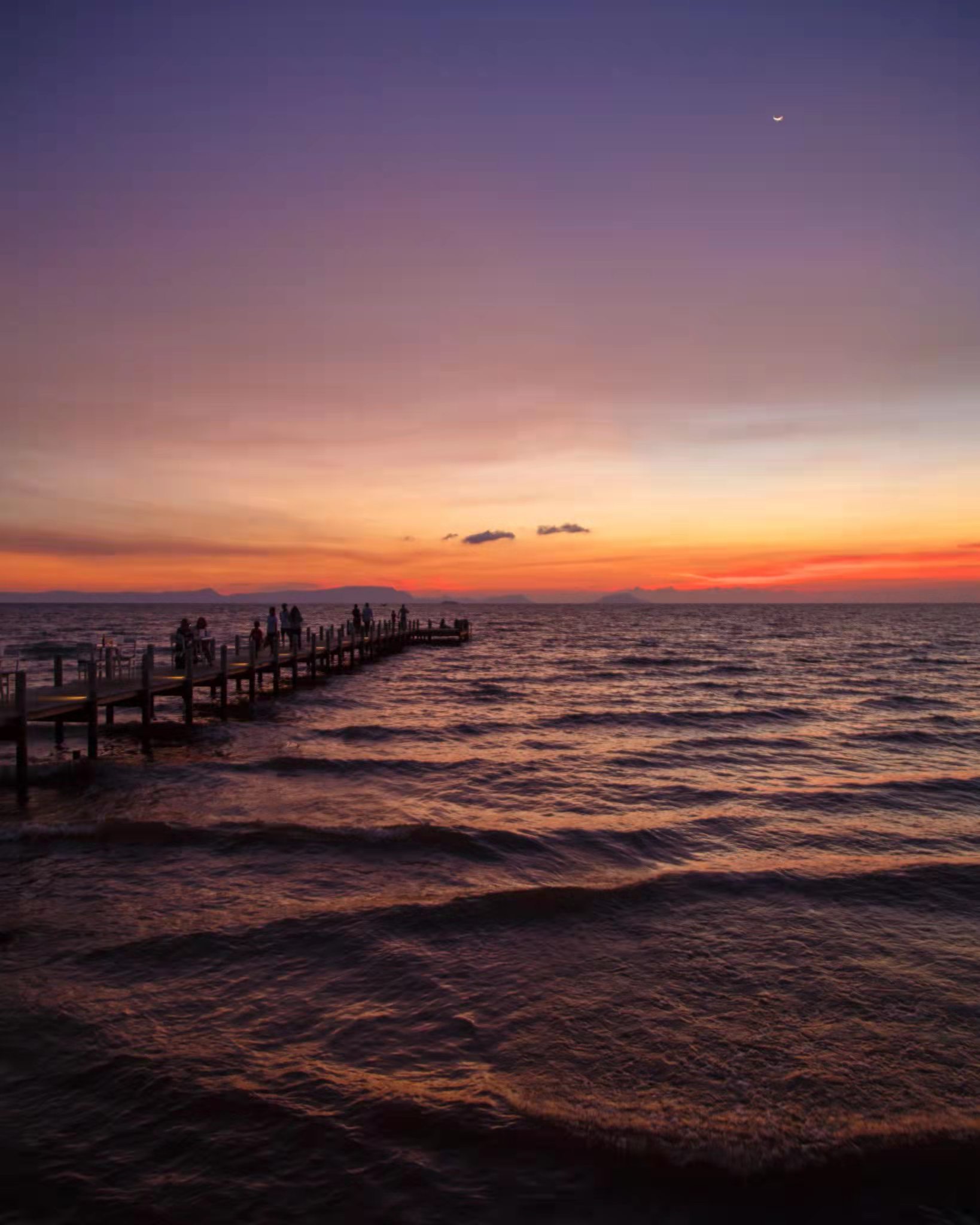
Sihanoukville was a quiet, beautiful beach until a few years ago. But in a short period of time, the town and the people are out of control. “I don't want to give personal names, but I am very upset because I know that one of my friend was locked up there.”
Many Chinese are involved in the bad incidents in the daily news in Cambodia. Taking advantage of people's weaknesses, kidnapping, imprisoning, and enslaving innocent people, it's not something that the same people would do.But the important thing to remember is that never judge a person's goodness or badness, or impression of them, by the country they were born in.
He has ever been in danger several times in Cambodia.“ I have had my cell phone almost taken from me when I was in a tuk-tuk or walking on the side of the road, but I took it back. I once ran into a man with a knife while walking around taking pictures, but I greeted him in Cambodian, and surprisingly he didn't do anything to me, but smiled and sent me on my way. ”
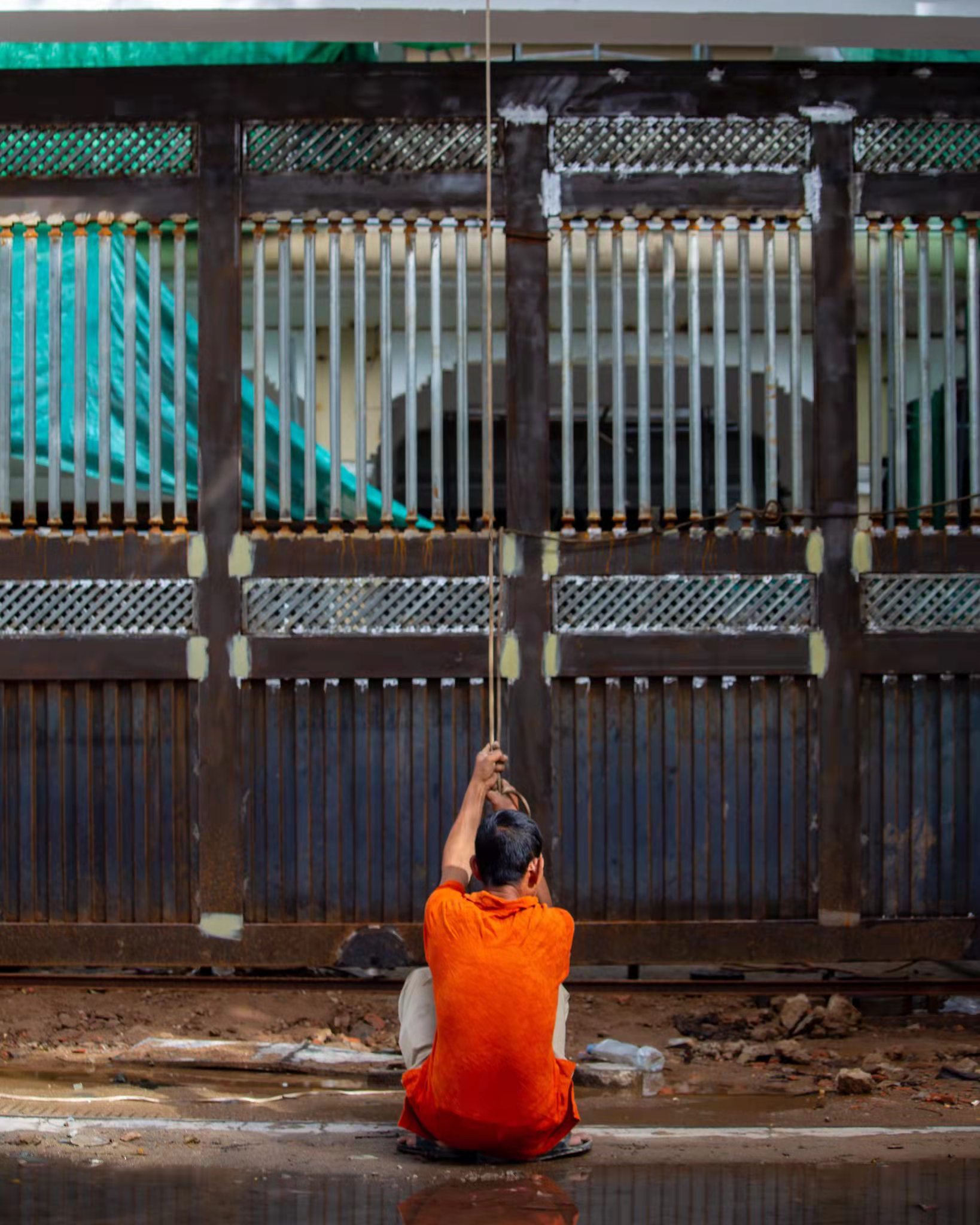
The most annoying thing was when a man in a uniform, who he couldn't tell if he was a police officer or a guard, suddenly came to him in a place where there were no restrictions, and told him that he had to pay him because photography was prohibited here. “I don't understand why I need to pay to take pictures of the scenery of the town. If I need permission, I won't take pictures in that place. ”All of this is quite common in Cambodia.
There are many Japanese and people from other countries who are just as bad. It’s not about country ,it just about those person doing bad things thenselves.“I always want to be both a Japanese citizen and a global citizen. ”
What is global citizen ?Miyatake thinks that is the awareness that everyone, regardless of where they were born, is a member of the global community and a responsible citizen who participates in the global community. He understands this to be a spirit of compassion and respect for diversity, as well as a desire to leave a good society for the next generation.
That is why he started ART4FOOD as a co-founder with friends from all over the world to help the suffering people in Cambodia.
“If we didn't have the awareness of being global citizens, that project might not have existed.” He believes that nationality has nothing to do with the act of helping people who are suffering. He is not a UN official or a journalist, but whether it is Myanmar, Belarus, Venezuela, India, or wherever, if there are people suffering, he cannot just turn a blind eye.
“We may be from different countries, but we are brothers and sisters living on the same planet, aren't we? If someone is suffering, we help them; if we are suffering, we ask for help. Isn't it our duty as Global Citizens not to think that all is well with ourselves?”
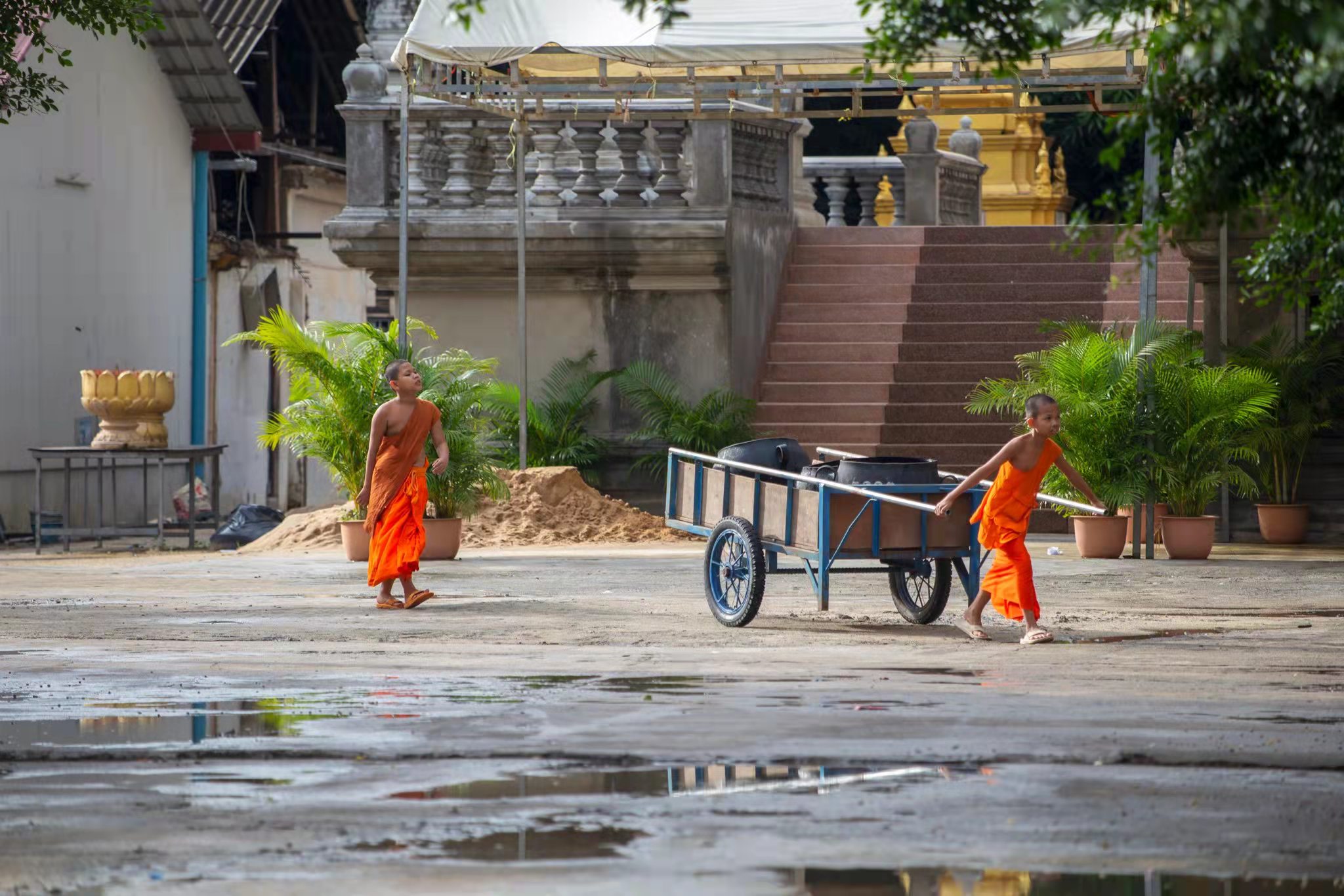
Shunsuke Miyatake is a Japanese photographer based in Phnom Penh exploring cultures through people's everyday life. Started iPhone photography as a hobby in 2010, and became passionate about photography after meeting with Instagram. After moving to Cambodia in 2016, focusing on documenting people's everyday life / Photography for good. Co-founder of ART4FOOD. One of The winners of the Single Images category of the 7th Annual Featureshoot Emerging Photography Awards in 2021.
Instagram/ https://www.instagram.com/casadetake/
Twitter/ https://twitter.com/casadetake
Website / https://casadetake.com/
|